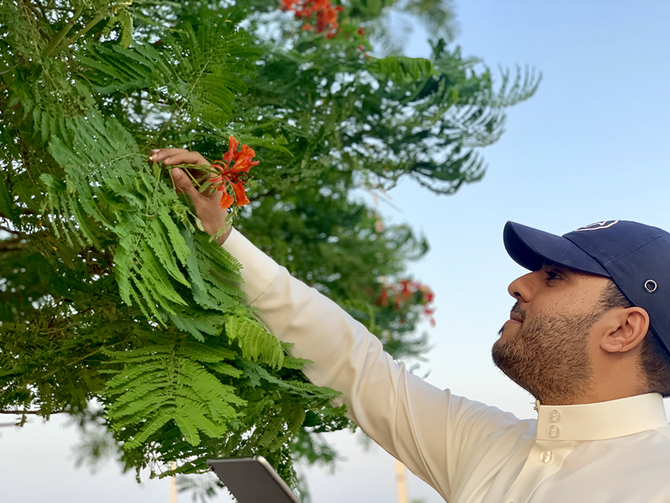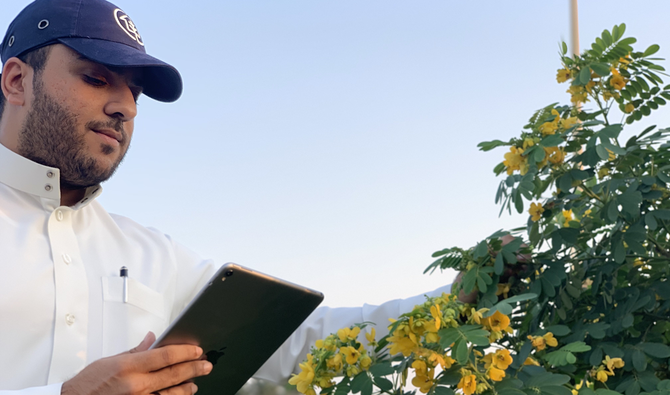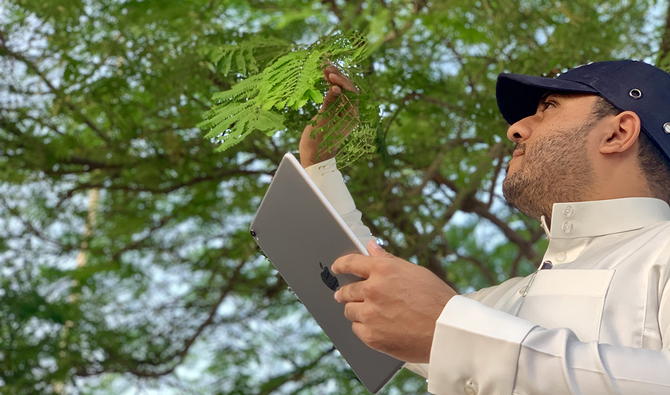JEDDAH: Faced with swaths of emptiness across Saudi Arabia’s desert landscapes, entrepreneurs are embracing corporate social responsibility and doing their bit to protect the environment.
Nabatik, an initiative from engineer Mohammed Al-Khalid, wants to give people the opportunity to plant trees through just a few clicks while supporting nurseries in the Kingdom in the process.
Deforestation has increased CO2 emissions in the atmosphere and rising temperatures have shown how harmful the impact can be on ecosystems — increased water temperatures, record-breaking summer heat, strong and devastating storms. But there is a way to undo some of the damage.
“All it requires is one simple act — planting trees,” Al-Khalid told Arab News.
Trees can help mitigate the consequences of climate change as they have great potential for carbon sequestration and are often seen as the easiest and most affordable approach to address global warming.
Thousands of acres of forest are being cut down everyday, and studies show what will happen in the future if more trees are lost. These frightening scenarios have prompted NGOs, government agencies and businesses to see what they can do to protect the environment.
Trees can help offset the carbon footprint, lower temperatures, help with energy efficiency at home, purify the air and minimize dusting, said Al-Khalid. “A neighborhood full of trees is a healthy neighborhood with healthy residents. It shades those who walk and brings peace to their mind.”
Al-Khalid, who is from the Kingdom’s Eastern Province, planted his first tree 20 years ago while on a journey with his father. “I was very much interested in trees and plants as a kid and, upon returning to the same area where I planted my first sapling, I found a sprawling tree where I was able to protect myself from the searing sun under its shade. It stayed with me and gave me the idea to start a business.”
HIGHLIGHTS
• The goal of planting a million trees by 2030 will help the Saudi Vision 2030 reform plan for a greener Kingdom.
• Afforestation campaigns have been initiated since the launch of Crown Prince Mohammed bin Salman’s strategy, and Nabatik plans to play a role in this vision and make an impact on the Kingdom’s biodiversity.
“We, the youth, are the custodians of the future and it is our obligation to ensure that we live on this Earth sustainably in order for future generations to thrive and prosper. There’s no question that trees and forests in the Kingdom should not be considered a secondary need anymore. They’re becoming a necessity, especially in a time where climate change might become an irreversible reality.”
He explained that the benefits of trees for livable and sustainable communities could be achieved by planting trees in urban neighborhoods and parks. 
The Nabatik platform works for the buyer’s convenience.
Customers can choose from neem trees, ficus religiosa, bougainvilleas, bonsiana, giant lemon trees and more. The trees are delivered to people’s homes and planted. Customers will soon get the option to have the trees cared for to ensure greater longevity.
The trees on the website have been chosen for their ecological and economic viability. They can cope with harsh conditions, low water consumption and they cause no harm to infrastructure. They have a high carbon absorption and, at the same time, beautify urban areas and homes.
“The topic of sustainability is one of major concern on many forums, a daily point of discussion globally. Many Saudis have taken into consideration how to include sustainability in their business plans.”
The goal of planting a million trees by 2030 will help the Saudi Vision 2030 reform plan for a greener Kingdom.
Afforestation campaigns have been initiated since the launch of Crown Prince Mohammed bin Salman’s strategy, and Nabatik plans to play a role in this vision and make an impact on the Kingdom’s biodiversity.
Nabatik aims to work with Eastern Province municipalities and plans on expanding to others across the Kingdom, teaming up with nurseries to develop their capabilities while also encouraging businesspeople to invest in nurseries as growing and profitable ventures.
“The more businesses thrive, the higher the supply and demand would be,” Al-Khalid added.






























